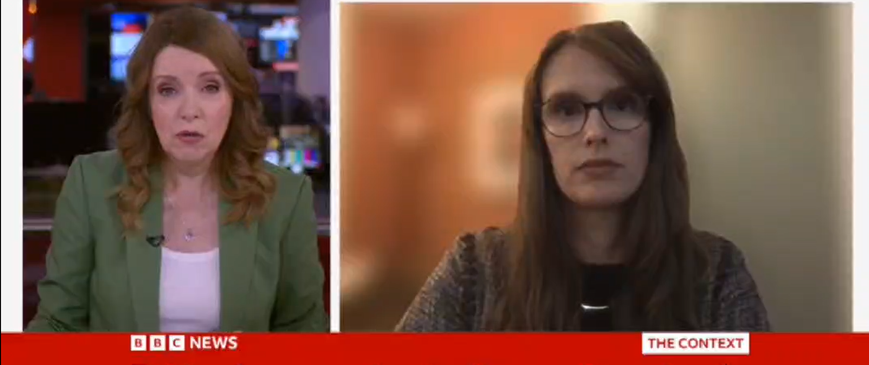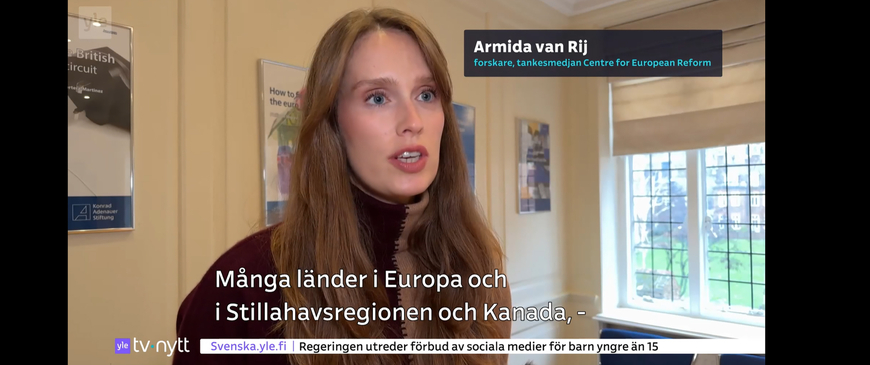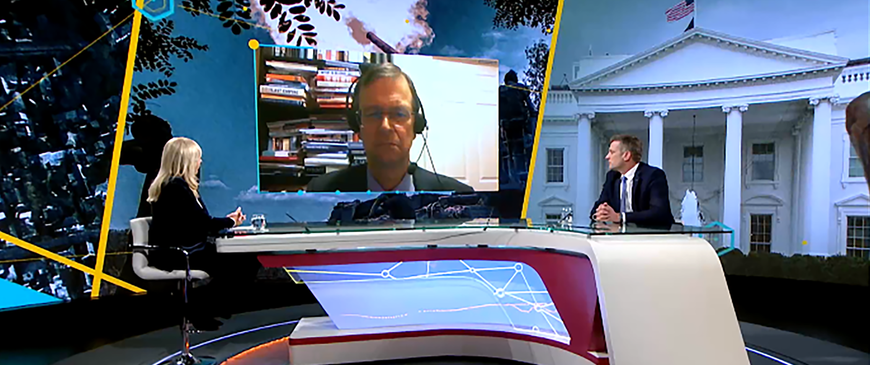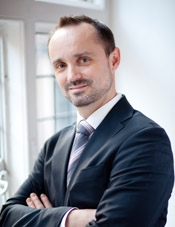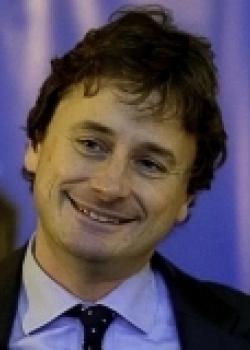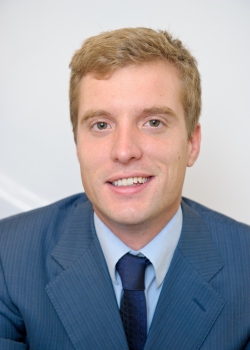Press
NATO to begin cyber security drive
28 February 2012
Financial Times
Tomas Valasek, of the CER said: "This shows that countries outside the US are now taking cyber seriously." He added that NATO had suffered security breaches in the past and that it needed to protect itself. "It is an obvious target as it is a military alliance included in a shooting war in Afghanistan and has peace building operations in Kosovo and off the coast of Somalia. One has to assume bad guys are after it," he said.
ECB to launch second wave of euro 'quantitative easing'
28 February 2012
The Guardian
"The ECB's December move to provide massively greater liquidity to the banking system was the single most important thing to happen in the eurozone last year," said Simon Tilford, chief economist at the CER. "This has bought time by easing the pressures on the banks, who in turn have bought more government debt – at least in Italy and Spain – than had looked likely."
Germany backs Greece aid, but at a cost to Merkel
27 February 2012
New York Times
"I still don’t see any light at the end of the tunnel," said Philip Whyte, of the CER. "It's not clear to me when Greece returns to growth under this policy mix. The fiscal policy is excessively tight, and Greece is being pushed down a totally self-defeating path."
Five tests that saved Britain from the fate of economic oblivion
27 February 2012
The Daily Telegraph
As Philip Whyte of the CER points out, "to propose such reforms as an answer to Europe's immediate growth problem is to miss the point: it is to provide a long-term [supply-side] answer to a short-term [demand-side] problem.
Pressure on Germany to boost eurozone firewall
27 February 2012
Public Service Europe
As Philip Whyte of the CER points out, "to propose such reforms as an answer to Europe's immediate growth problem is to miss the point: it is to provide a long-term [supply-side] answer to a short-term [demand-side] problem.
It's no longer taboo to talk about Greece leaving the euro
26 February 2012
Cyprus Mail
Getting the EU economy back on track is not all about bailouts and quick fixes. It's about leadership and direction said Simon Tilford of the CER. In his opinion, the problem is made far worse because of differences of opinion within the EU leadership about how the crisis started and more importantly how to fix it.
Questions in Europe as outlook falls
24 February 2012
The Wall Street Journal
"I think there needs to be a recalibration of targets for Spain and Italy," said Simon Tilford, chief economist of the CER, adding it was crucial they "avoid making the same mistakes we've seen in Greece, Portugal and Ireland," in reference to the three eurozone countries that have required international bailouts.
Eurozone ministers approve $170 billion bailout for Greece
20 February 2012
Los Angeles Times
"What the Greek economy is going through basically is a massive demand shock," said Simon Tilford, chief economist at the CER. "Unless they help the Greek economy back to growth, then I don't think there's any chance of the Greeks being able to abide by the terms of this bailout."
Europe's growth woes worsen
15 February 2012
The Wall Street Journal
"If everyone is deleveraging and fiscal policy is tightened against that backdrop, then no one spends," said Philip Whyte of the CER. "There has been a sea change in emphasis" from austerity to growth in much of Europe, Mr Whyte said, "but I don't detect much of a change in German thinking."
Doubts grow over austerity for Greece
15 February 2012
Voice of America
Philip Whyte, senior research fellow at the CER, describes the standoff between Greece and its creditors - which also includes the International Monetary Fund and the European Central Bank - as a bluffing game. "The social strains in Greece are increasing by the day. ... At the same time, there's a complete loss of trust amongst the troika [EU, IMF and ECB] in Greece's willingness and ability to push through the sort of reforms that everyone expects the Greeks to push through. ... There is a growing view among certain countries in northern Europe that this game can't go on. ...
UK austerity v US stimulus: Divide deepens as eurozone cuts continue
14 February 2012
The Guardian
"More people are openly questioning the economic logic of fiscal austerity at a time of pronounced private-sector weakness. The spectre of Greece and Portugal is putting advocates of the current strategy on the defensive," says Simon Tilford, chief economist at the CER.
What if this was the easy part?
13 February 2012
New York Times
"The IMF has never approached a country like this," said Simon Tilford of the CER. "With this much austerity, it would always have a huge devaluation, too." But Greece cannot devalue its currency because it uses the euro, so "Greece has been asked to do something the IMF has never asked another country to do."
Greek parliament passes austerity plan as riots rage
12 February 2012
The New York Times
"They're trying to lay the ground for it, trying to limit the contagion from it," said Simon Tilford of the CER. Still, he added, letting Greece go would set a dangerous precedent, and it would be "fanciful" to think otherwise.
We have to own up on the UK economy – we are not a big club anymore
12 February 2012
The Guardian
As Simon Tilford of the CER has noted, as a share of its economy Italy's manufacturing sector is as big as Germany's, while France's industrial base is as small as Britain's.
16 'angry parents' lecture Greece
11 February 2012
The Wall Street Journal
Charles Grant, director of the CER, says he has believed for some time that Greece would leave the euro because there is no political will to enact the changes needed to keep it in. While he acknowledged the growing notion that a Greek exit wouldn't have serious repercussions for any other country, he said, "nobody can be quite sure."
The Greek debt conundrum, explained
10 February 2012
The Christian Science Monitor
"Greece is trying to massively reduce its public borrowing without anything to offset these measures, like [devaluing] the currency," says Simon Tilford of the CER. "So the cuts in spending become self-defeating because the economy is contracting faster than they can implement cuts."
Greece makes deal with banks, cuts wages to get debt relief
10 February 2012
USA Today
"What they are actually discussing is nowhere near enough," said Simon Tilford, chief economist at the CER in London. "Six months down the line, there will have to be another big haircut, and again and again, it will take years."
Between lots of rocks and hard places: Greece's bad options
07 February 2012
Time
"There is now broad agreement among eurozone donors and the IMF that Greece will not be able to squeeze more revenue out of an economy that is in its fourth year of recession," wrote Katinka Barysch, deputy director of the CER in a recent assessment.
Russia defends Syria at UN - Part of an anti-western foreign policy?
07 February 2012
Voice of Russia
James Reinl hosts a debate for VOR London with Aleksandr Nekrasov, Edward Burke, CER and Israel Shamir on Russia's protection of Syria's government in the UN Security Council, and asks whether Moscow simply has a knee-jerk reaction against Western policy goals.
Austria far right leader hurt by "new Jews" comment
06 February 2012
Reuters
Katinka Barysch, deputy director of the CER, noted Strache's push to stop sending money to Brussels, hold referendums on rescue packages and create a two-speed eurozone resonates well with EU-skeptic Austrians.

